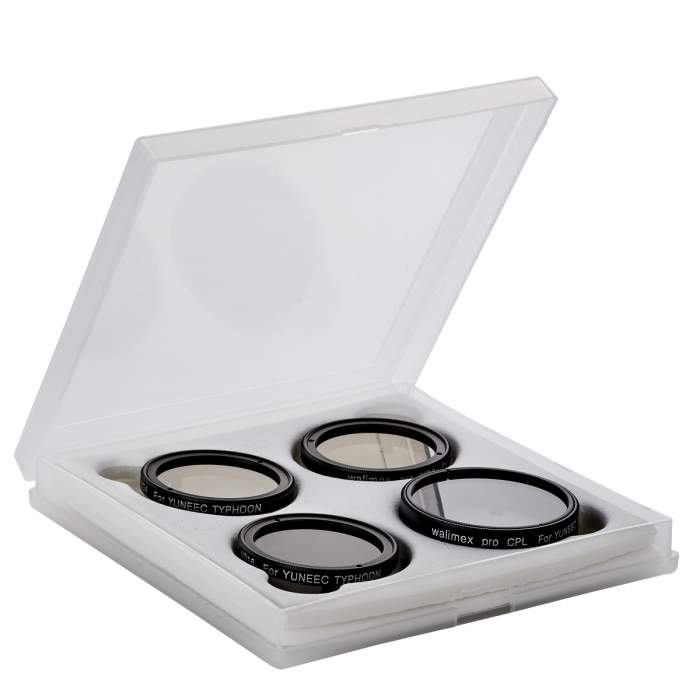
vai pajautājiet par
| Filtra tips | CPL+ND |
| Filtra izmērs | cits |
- Drone filter set for Yuneec Typhoon
- Filter set comprises CPL, ND 4 , ND 8, ND 16
Polarization filter
The polarization filter is still one of the filters used most often in photography. This filtering reduces reflections on glass and the surface of water or puddles. At the same time, they increase colour saturation and enhance contrast. Objects behind glass (display cabinets, windscreens) become visible.
The polarization filter is the only filter whose effect cannot be achieved afterwards using image editing software. The reflections must be removed when the image is taken. It's not possible to do it after the shot. The CPL filters reflections out, and increases colour saturation and contrast.
Grey filter / ND Filter
Grey filters, also referred to as ND filters (neutral-density filters), reduce the entire visible light spectrum evenly throughout the entire filter. Colours and contrast are not affected by this.
Filter factor 4 increases the exposure time / aperture size by 2 stops
Filter factor 8 increases the aperture exposure time / aperture size by 3 stop
Filter factor 16 increases the exposure time / aperture size by 4 stops
| Filter | When to use |
| CPL | In situations wehe you don't need to reduce shutter speed, use CPL tor deuce glare |
| ND4 | At low light conditions, but with direct sunlight, for example: Sunreise, Sunset |
| ND8 | At cloudy dasy / partly cloudy |
| ND16 | At days with strong sunlight (bright day with no clouds) |
| ND32 | At days with very bright conditions. Completly clear sky and sun at ist highest point |
General information
| Model | Yuneec Typhoon Q500, Yuneec Typhoon H, Yuneec CGO 3 camera |
Packaging
| Girth | 303mm |
| Height of Packaging | 17mm |
| Length of Packaging | 129mm |
| Weight incl. Packaging | 180g |
| Width of Packaging | 126mm |
| Filtra tips | CPL+ND |
| Filtra izmērs | cits |
 Google
Google











